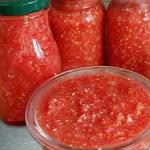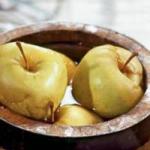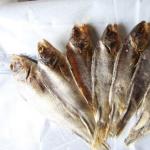Quail eggs: calorie content, benefits and harms of the product, use in dietary nutrition. Quail eggs: how many calories are in an egg, benefits, harm
Introduction
Today we’ll talk about what a quail egg is, what it’s eaten with, how many calories are in an egg, its harms and benefits.
Some facts
In Japan, these small eggs are often found in bento lunches or some types of sushi. Quail eggs are also used in modern French and Dutch cuisines. Recently, doctors have even recommended them, and serious studies have shown that the benefits of these eggs are recognized in the treatment of 10 different diseases. Many people are interested in everything related to these eggs: how many calories are in a quail egg, its harm and benefits. This article will try to shed light on some of the life aspects associated with the use of this product.
Beneficial features
A quail egg consists of 10-15% protein, while in a chicken egg its number is only 11. These eggs contain much more bioactive substances than the eggs of other birds. Quail eggs are rich in vitamin B12. Therefore, they are very useful for vegetarians who give up meat but consume dairy products and eggs. Quail eggs also contain a record amount of vitamins B1, B2, A. Moreover, they contain magnesium, zinc, phosphorus, potassium, manganese, and a huge amount of iron.
Quail egg calories

Due to its low fat content, this product can be considered dietary. Nevertheless, we will give exact figures for the peace of mind of the consumer. Quail eggs, whose calorie content per 100 g is about 160, are very useful for heavy physical activity and diets. The weight of one egg reaches approximately 10 g. In this case, the question of how many calories are in an egg is almost irrelevant. You can eat several eggs a day without harming your weight. The beneficial properties of quail eggs can alleviate the course of some psychosomatosis and neuroses, as well as bronchial asthma. A moderate amount of this product is also beneficial for heart diseases. It should be noted that a quail egg contains several times less cholesterol than a regular chicken egg. They also have a good effect on reproductive health: healthy fats, protein and folic acid support female hormonal levels.
Are quail eggs good for children?

Every Japanese schoolchild gets 2 of these eggs for lunch. Healthy vitamins and minerals activate brain activity, so your child remembers better in school. However, it is still worth observing the measure. Eating quail egg shells is beneficial for children and adults, since it consists of almost 100% calcium carbonate, which is easily absorbed by the human body. Regularly eating egg shells is beneficial for brittle hair and nails, insomnia and irritability, bleeding gums, hives, constipation and asthma.
How to eat quail eggs
It is better to consume quail eggs boiled, since the content of avian influenza and infectious agents in them has not yet been accurately determined. Raw eggs can be added to various dishes. Since you now know how many calories are in an egg, you can help yourself and feed them to your family and friends without a twinge of conscience.
Quail eggs are a tasty and healthy product that is successfully used in cooking and traditional medicine. They gained such popularity due to their rich chemical composition. A quail egg is small in size: compared to a chicken egg, it is five times smaller. Despite this, there are much more useful substances in this product. This tasty and healthy product can be consumed by almost everyone. It can be introduced into the diet of children from the age of six months. It is quail eggs that are a good prevention of rickets. Eggs can cause harm to the body if eaten in large quantities. In this case, even a fresh product can cause poisoning of the body.
- vitamins: A, A (RE), (retinol, beta-carotene, carotene), group B (1 - thiamine, 2 - riboflavin, 3 - niacin, 4 - choline, 6 - pyridoxine, 9 - folate), E (tocopherol) , PP (nicotinic acid),
- minerals: K (potassium), Ca (calcium), Mg (magnesium), Na (sodium), S (sulfur), Ph (phosphorus), Cl (chlorine), Fe (iron), Co (cobalt), Mn (magranese) , Cu (copper), Mo (molybdenum);
- di- and monosaccharides;
- essential amino acids: phenylalanine, tyrosine, arginine, histidine, valine, isoleucine, lysine, leucine, methionine, threonine, phenylalanine, tryptophan;
- nonessential amino acids: glycine, alanine, aspartic, glutamic, proline, serine, tyrosine, cysteine;
- cholesterol.
- proteins - 11.9 g;
- fats - 13.1 g;
- carbohydrates - 0.6 gr.
- pancreatitis;
- any forms of diabetes;
- oncological diseases;
- stomach ulcer;
- gastritis;
- hypertension;
- atopic dermatitis;
- hepatitis;
- atherosclerosis;
- bowel dysfunction;
- cholelithiasis;
- cholecystitis;
- asthma;
- arthritis, arthrosis;
- rheumatism.
- children aged 1 to 3 years can eat 2 eggs per day;
- from 3 to 10 years - no more than 3;
- from 10 to 18 years - about 4;
- at an older age - 5 - 6 pieces.
- 1. Fill with cold water, put on fire, where it is brought to a boil and remains in this state for 5 minutes.
- 2. Then the water should be drained and the procedure repeated again.
- 3. After the shell has cooled, you need to remove the film from it, pour apple cider vinegar and place in a dark place for 24 hours.
- 4. The prepared raw materials should be ground twice in a coffee grinder and used as intended.
Show all
Composition and calorie content
Useful properties of quail eggsdue to their rich chemical composition. It is worth noting that the concentration of nutrients in this product is much greater than in chicken products: vitamin A - one and a half times, vitamin B, phosphorus and potassium - six times, iron - four and a half times.
Quail eggs contain:
Quail eggs have an average calorie content: approximately 168 kcal per 100 grams of product.
BJU ratio:
Beneficial features
Quail eggs are very healthy. Due to the beneficial effects on the body of the active components they contain, this product is recommended to almost everyone: children, young men, women and the elderly. Its use is not contraindicated for infants, pregnant and nursing mothers.
Quail eggs are used to strengthen the immune system. This product is hypoallergenic and has the ability to remove harmful toxic compounds from the body.
Eggs stimulate the process of hematopoiesis, regulate the functioning of the nervous and digestive systems, prevent the development of cancer and reduce joint pain.
To achieve the maximum therapeutic effect for a particular disease, it is recommended to consume the product raw, although some of the nutrients and vitamins are retained in boiled quail eggs. They contain a large amount of protein and folic acid, so the use of the product is indicated for athletes, as well as women with hormonal imbalance.
Quail eggs are prescribed for the treatment of the following diseases:
Thanks to lutein, the product is used to prevent eye diseases. This substance protects the organs of vision from light radiation.
Its concentration in the body decreases every year, which invariably leads to impaired visual perception. It is quite possible to save the situation if you regularly eat raw quail eggs for a month in the morning on an empty stomach.
In addition to calcium, eggshells contain a number of microelements: copper, fluorine, silicon, zinc and sulfur, thanks to which it is used as a stimulator of the hematopoietic function of the brain and is used to strengthen the body.

Hazelnuts - caloric content of the product, benefits and harm to the body
How to use it correctly
It is very important to take this product correctly. Before eating raw quail eggs, they should be washed, as pathogenic bacteria may be present on the surface of the shell that can harm human health. Quails have a fairly high body temperature, which determines their resistance to various types of infections. Such processing will be quite sufficient.
The eggshell should be broken and the contents poured into a mug. For taste, you can lightly salt the dish and wash it down with water after eating. In order to achieve the greatest effect, it is recommended to drink eggs in the morning on an empty stomach.
Children under three years of age are allowed to eat eggs only after heat treatment. So that they do not lose their beneficial qualities, they should be cooked for no more than 2 minutes.
The daily intake of quail eggs depends on the age category and weight of the person:
The shell is prepared as follows:
You can consume it half a teaspoon for preschool children and a whole spoon for adults.

Benefits for men and women
Quail eggs have the most positive effect on male potency. This product belongs to the category of natural aphrodisiacs. It contains protein compounds that are involved in the production of hormones.
If you use the product regularly, the desired result will be noticeable within a few days.
Among other things, quail eggnog increases skin elasticity, improves hair condition, fills the body with useful microelements and helps cope with vitamin deficiency. The product is hypoallergenic and useful not only for men, but also for women.
Quail eggs in children's diet
Quail eggs prevent the development of rickets in children, stimulate the activity of brain cells, help improve memory, and normalize the functioning of the central nervous system. Children who use them regularly grow up more capable, perceive information more easily, are attentive and collected.
This product can be introduced into a child’s diet from six months of age. The baby is allowed to give a quarter of the yolk, and the mother is advised to monitor its condition after each meal. If the baby does not develop an allergic reaction or dyspeptic disorders, then the portion should be gradually increased. By the beginning of the third week, it should be a whole yolk, which is the norm that should be followed until one year of age.
Until recently, quail eggs were considered a delicacy, which was prepared and served only on special occasions and holidays. But today this product can be found on the market along with traditional chicken eggs. Many even completely switch to eating only quail eggs, believing that they are much healthier. For example, there is an opinion that the calorie content of quail eggs is lower, but the content of valuable substances in them is higher. Indeed, this product is rich in protein, it contains healthy fatty acids, E and D, B vitamins and an extensive list of microelements: iron, potassium, magnesium, calcium, phosphorus, zinc and others. But there are not so few calories in a quail egg, because it contains a sufficient amount of fat.
How many calories are in a quail egg?
Quail eggs differ quite clearly from chicken eggs, first of all, in their appearance, so it is impossible to confuse them. Quail eggs have small brown speckles and are much smaller in size and weight. If compared with a chicken egg, the volume ratio will be 1:5. Therefore, the calorie content of quail eggs also seems to be lower, although in fact it is quite comparable to the energy value of ordinary eggs. For example, one chicken egg contains 70-75 kcal, and the calorie content of 1 piece of quail egg will be approximately 14-15 kcal, which means that five pieces will also contain 75 kcal. In order not to increase this indicator, it is recommended to boil or steam the product. After all, fried eggs with added oil will be fattier and less healthy. And boiled quail eggs will be almost similar to the energy value of the raw product. And in the boiled dish, almost all the beneficial substances and vitamins will be almost completely preserved.
Quail eggs gained their popularity thanks to the Japanese, who brought birds from China in order to study the composition of their meat and eggs. As a result, the Japanese became convinced of the exceptional usefulness of these products. The time has passed when quail eggs were a “curiosity” among us; now you can buy them in almost any supermarket and you can experience all the usefulness of this product for yourself. How many calories are in one quail egg? What are the properties of a quail egg and what are its benefits? Let's take it in order.
How many calories are in a quail egg?
The calorie content of a quail egg is low, so this product is popular among those who watch their figure. One quail egg contains approximately 20 kcal, 1.4 g of protein, 1.2 g of fat and 0.06 g of carbohydrates. The weight of one egg is approximately 9 - 15 g. 
Composition of quail egg
Quail eggs are a real storehouse of nutrients. They contain vitamins (A, PP, E, Group B, choline), microelements (copper, chromium, cobalt, iron, molybdenum, manganese), macroelements (phosphorus, chlorine, potassium, sulfur, sodium, calcium, magnesium), as well as valuable amino acids (tyrosine, lysine, glycine, trenin and histide). In terms of their usefulness, they are 5 times superior to chicken eggs.
What are the benefits of quail eggs?
Quail eggs have immunostimulating, antibacterial and antiviral properties. This dietary product is hypoallergenic and can be given even to small children (over 1 year). 
Unlike chicken eggs, quail eggs contain less cholesterol. In addition, they are resistant to salmonellosis, so they can be consumed not only boiled, but also raw. However, it should be noted that during heat treatment, quail eggs lose most of their beneficial substances, so for medicinal purposes they should be consumed raw.
Quail eggs when consumed regularly:
- strengthen the immune system;
- by 20%;
- normalize brain function and improve memory;
- improve vision;
- normalize the functioning of the gastrointestinal tract;
- strengthen teeth;
- promote hair growth;
- reduce age spots and improve skin color.
Quail eggs can be added to salads, sushi, made into original snacks and homemade mayonnaise based on them. Try to experiment - make ordinary dishes original by adding quail eggs instead of chicken ones. 
Eat 2 raw quail eggs every morning on an empty stomach and in the evening, and after just a month of regular use, you will feel the positive results of this product!
Text: Tatyana Maratova
Quail eggs in the nest
Raw egg contains the fewest calories - total 74 Kcal. However, we do not recommend that you eat raw chicken eggs: there is a risk of contracting salmonellosis. Therefore, it is best to subject them to heat treatment.
Calorie content of boiled eggs
A soft-boiled egg contains about 50 calories, but everything will depend on the weight of the egg itself. But you can take the following numbers as an example. But you should not take quail eggs as a basis for weight loss, since their calorie content is much higher than in ordinary hard-boiled or soft-boiled chicken eggs. Their calorie content is 168 calories per 100 g of a regular product.
How to properly boil chicken eggs
To more accurately calculate how many calories are in one boiled egg, you need to consider that eggs weigh from 35 to 75 grams. The average weight of a chicken egg is 60 grams. The shell of an egg makes up about 10% of its weight. Therefore, the calorie content of one boiled egg is 78 calories. For the convenience of counting calories in one unit of product, it is very convenient to use home kitchen scales.
Composition and presence of nutrients
Quail eggs contain many nutrients, including vitamins (A, B1, B2, PP), micro- and macroelements (iron, phosphorus, potassium, cobalt, copper, calcium), essential amino acids (threonine, tyrosine, glycine, lysocine, and histidine).
Calorie content of Quail eggs is 168 kcal.
Energy value of the product Quail eggs (Ratio of proteins, fats, carbohydrates):
Protein: 11.9 g (~48 kcal) Fat: 13.1 g (~118 kcal) Carbohydrates: 0.6 g (~2 kcal)
And if you boil a soft-boiled egg, then the calorie content of such a product will be about fifty to sixty kilocalories, but on the condition that the egg is store-bought. If the egg is homemade, rustic, then its calorie content will be seventy. Here the scheme is the same - the yolk contains the most calories, because it is the yolk that contains proteins, carbohydrates, fats, cholesterol; as for protein, it is the container of proteins, water, fats, carbohydrates, glucose, B vitamins and other enzymes .
Consequently, quail by-product can supply our body with a large amount of biologically active substances. In other words, possible dishes made from them are a good option for weight loss. Quail eggs are extremely nutritious - just eat a couple a day to get your daily protein requirement.
Useful properties of boiled eggs:
Although a quail egg is several times smaller than a smoked one, its calorie content is higher and amounts to 168 calories per 100 grams of product.






